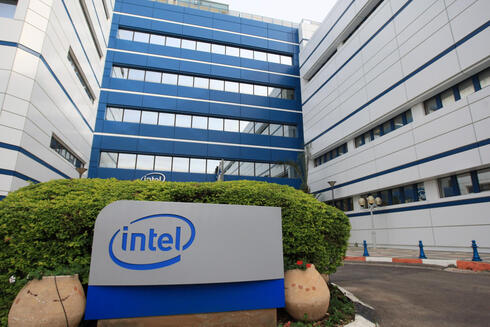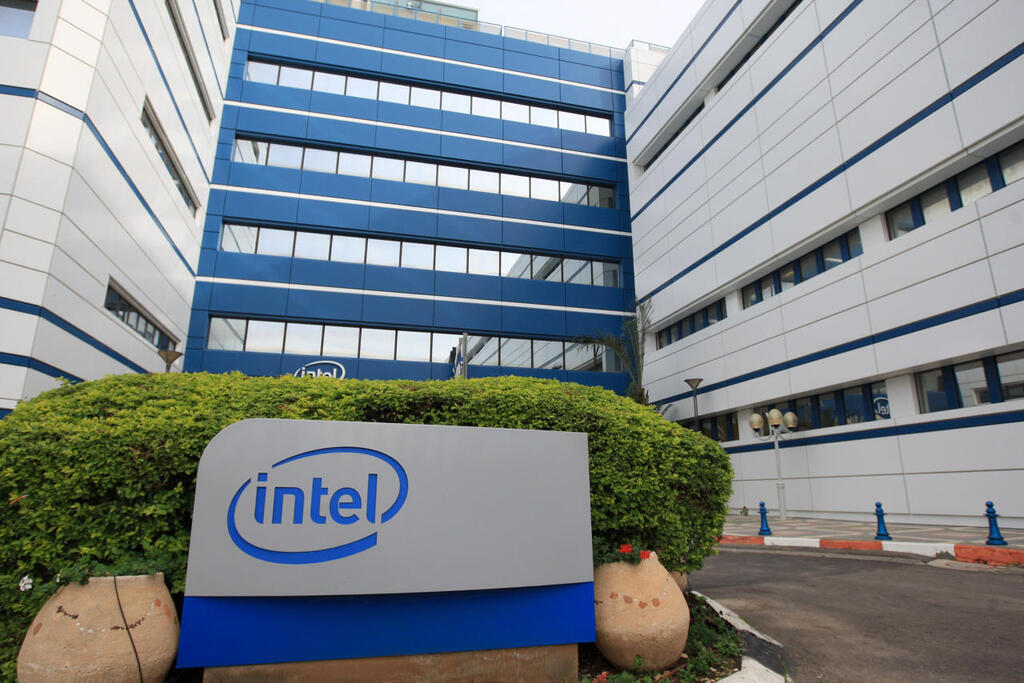
"In the best case, hundreds of employees at Intel Israel will be laid off; in the worst case, it could be 1,500"
Intel Israel faces potential layoffs of up to 1,500 employees as part of the company's global workforce reduction plan. The cuts come amid Intel's broader strategy to optimize operations and address disappointing financial results.
"In the best case, hundreds of employees at Intel Israel will be laid off; in the worst case, about 1,500 employees may lose their jobs," former senior executives at the company have told Calcalist. Intel currently employs approximately 11,700 workers in Israel, with 7,800 in development and 3,900 in production roles.
Late last week, Intel Global announced its intention to lay off 15% of its workforce—equivalent to 17,500 employees—and to implement budget cuts totaling $10 billion. During meetings held by the company’s management in Oregon, USA, executives expressed their surprise at the poor financial results, particularly the lower-than-expected revenues, which have forced the company to take drastic measures.
Pat Gelsinger, who was brought in as Intel's CEO to turn the company around, is finding the task to be extremely challenging, and perhaps even impossible under current circumstances. In a message to employees, Gelsinger acknowledged the difficulty of the situation and the need for significant changes within the company. He emphasized that Intel must adapt its expense structure to its new operating model and fundamentally change the way it operates, citing the company's failure to achieve expected revenue growth and fully capitalize on strong trends like artificial intelligence (AI).
“This is painful news for me to share. I know it will be even more difficult for you to read. This is an incredibly hard day for Intel as we are making some of the most consequential changes in our company’s history,” Gelsinger wrote in a memo sent to employees.
For a company that employs over 110,000 workers, this means mass layoffs of more than 17,500 employees. In the past, Israel, due to its unique position within the company, has managed to weather previous waves of layoffs with relatively fewer job losses. However, current estimates suggest that Intel Israel will face its most severe round of layoffs to date.
Intel has stated that Israel remains one of its primary production and R&D sites globally and that the company remains committed to the region. At present, Intel has not announced any changes to its plans in Israel.
Intel stated that "Israel continues to be one of Intel's main production and R&D sites in the world, and the company remains committed to this region."
The situation began to unfold late last week when news of the mass layoffs leaked to the international media, and was later confirmed following the release of the company's quarterly results. That evening, CEO Pat Gelsinger addressed all employees, detailing the company's difficult situation and outlining plans to significantly reduce the workforce.
In an official announcement, Intel stated its intention to optimize operations and significantly cut expenses across various departments, including R&D, marketing, management, and mergers and acquisitions. Following this announcement, the management convened senior managers to discuss plans for reducing expenses. These managers are now tasked with identifying areas for significant cuts, including project closures and layoffs.
In Israel, Intel will likely need to provide similar reductions to those made globally. However, since Israel does not have many non-core activities, the impact may be somewhat lighter. A significant portion of the development work in Israel is integrated into a global development effort, so if certain development projects are shut down, the impact will be felt in Israel regardless of its location, as part of the larger project closure. Most of the projects likely to be closed are those that do not align with Intel's near-term future or do not have significant business potential for the company.
In Israel, the first step Intel will take is to offer voluntary retirement. It is estimated that Intel will present a voluntary retirement plan in two waves. The first wave will target veteran employees who have worked at the company for a long time and are at an age where retirement is an option. These employees will be offered a generous retirement package. The second wave will offer voluntary retirement to all employees, excluding those at the vice president level and above. This offer will likely be less generous but will provide an opportunity for those considering retirement, a move to another company, or a new career to receive substantial compensation and start anew. The voluntary retirement process is expected to last several weeks, with the goal of minimizing forced layoffs. The company's plan is to implement these measures by November this year, allowing time for an orderly process.
Once Intel concludes the voluntary retirement phase, it will then determine the number of layoffs required in each business division, regardless of geographic location.
In June, Intel froze part of the construction of a new factory in Kiryat Gat, a project initially estimated to cost $25 billion, supported by a generous government grant of $3.2 billion. Although the freeze did not result in layoffs, Intel continued to stress its deep commitment to Israel, as it reiterated in recent statements to the press.
While the new and existing factories in Kiryat Gat are not currently being canceled, the decision to reduce the workforce significantly could still affect the new sites. Intel employs about 4,000 workers in these factories, and its economic impact extends to the local economy through secondary and tertiary economic activities. A substantial reduction in the number of employees, along with reduced economic activity, could cause significant harm to the city.















